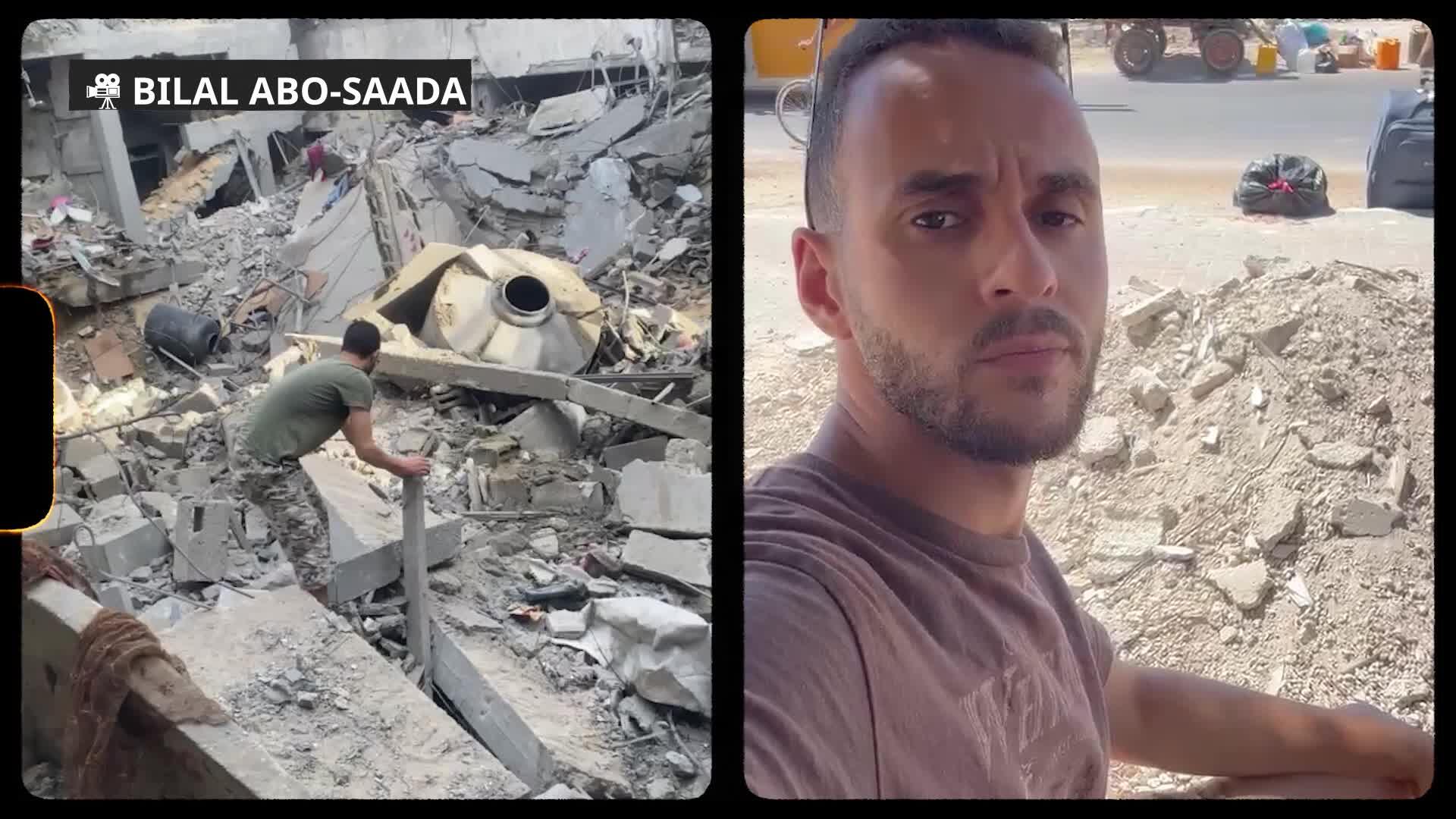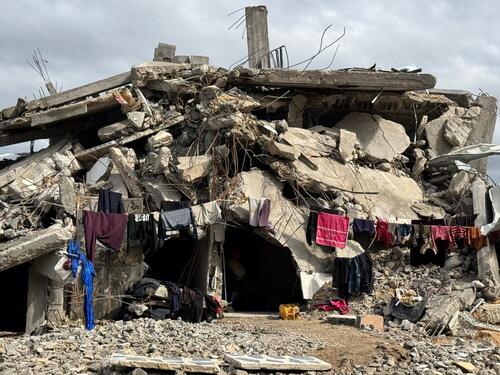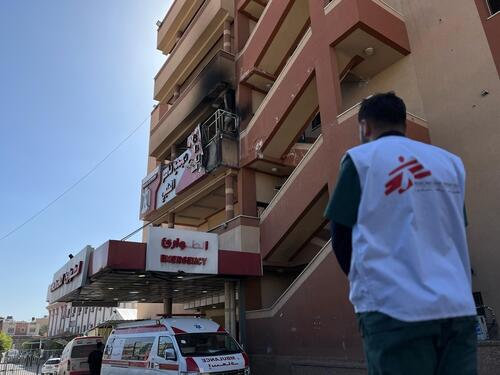Jerusalem – The Israeli forces continue to systematically use last-minute displacement orders as a violent tool, turning the Gaza Strip, Palestine, into hell on earth for Palestinians. Incessant bombing, a near-total blockade of aid, and displacement orders are moving and trapping hundreds of thousands of people into ever-shrinking spaces. The constant state of alert and unpredictability of displacement orders have devastating consequences on people’s mental health, reports Médecins sans Frontières (MSF). The forced displacement of people through displacement orders must end.
“Israeli forces are destroying all means of life for Palestinians in Gaza through psychological and physical warfare. Forced displacements are part of the Israeli forces and authorities’ campaign of ethnic cleansing of the Palestinian people. They have nowhere else to go,” denounces Claire Manera, MSF emergency coordinator.

The impact of evacuation orders
Since the start of the war, Palestinians have been forced to evacuate repeatedly, many fleeing for their lives multiple times, as experienced by a number of MSF staff. With 31 displacement orders issued since Israel broke the ceasefire on 18 March, the relentless forced displacements have trapped Palestinians in an endless cycle of suffering. On 19 May, a single large-scale displacement order in Khan Younis covered 22 per cent of the Strip, affecting more than 70 MSF staff members, while another one on 26 May covered 40 per cent of central and south Gaza.
“Our colleagues are desperate,” says Omar Alsaqqa, MSF logistic manager. “There are no tents left and no space for people to set up, I don’t know what to answer when colleagues ask me where they can go with their children in the middle of the night. We are running out of options to stay alive.”
These displacement orders and established no-go military zones now cover around 80 per cent of Gaza, and not a single area of Gaza has been spared from attacks. On 26 May, MSF teams treated 17 patients following an attack very close to its Khan Younis healthcare centre in central Gaza, right in the area where people are supposed to move to. People evacuate areas only to be bombed again in their new “safe refuge”. About 600,000 people have been displaced again since 18 March.1
I woke up my children and told them we were just going out for a little bit. They started crying. They grabbed their bags. I was terrified but tried to act calm...Asmaa Abu Asaker, MSF liaison officer
“I woke up my children and told them we were just going out for a little bit. They started crying. They grabbed their bags. I was terrified but tried to act calm, even though my heart was pounding with fear,” explains Asmaa Abu Asaker, MSF liaison officer, after a displacement order was issued in her neighbourhood.
These orders are unpredictable and come with ridiculously short deadlines, putting people in an impossible situation. People receive leaflets, social media posts or a phone call about an imminent attack, leaving them limited time to collect their belongings and seek shelter. The very act of forcing people to repeatedly flee, often in the middle of the night, without having anywhere to go and at risk of their lives, is not only having a physical impact, but causes an immense psychological toll.
“This time I don’t want to pack. No bags, no papers, nothing. I don’t know why, maybe my mindset is wrong, but I just cannot mentally process the idea of leaving home again,” says Sabreen Al-Massani, an MSF psychotherapist who has been displaced multiple times. “A whole new struggle started, no flour and food supplies. I used to have my own life, [going from] house to work, work to house, normal life. Suddenly, I had to live with unknown people in a harsh environment, without access to basic necessities, chasing after water, phone charging. Then came another evacuation: our whole area was hit.”
We are in a constant state of alert; we can receive a notification to flee at any time. We cannot sleep at night thinking we might be the next.Sabreen Al-Massani, MSF psychotherapist
While displacement orders are forcing Palestinians to be cramped in ever-shrinking areas, Israeli forces also regularly attack without issuing displacement orders. On 9 April, more than 20 people were killed in a strike that targeted a residential block of seven buildings in Gaza City. Among those killed were the families of two MSF staff members who were at work when the strike occurred and later learned their loved ones had been buried under the rubble.
“We are in a constant state of alert; we can receive a notification to flee at any time. We cannot sleep at night thinking we might be the next,” says Al-Massani, describing how the displacement orders are severely affecting Palestinian’s mental health and state of anxiety.
MSF calls on the Israeli forces to immediately halt the forced displacement of people and ongoing campaign of ethnic cleansing of Palestinians in Gaza. We also call on Israel’s allies to halt their support and complicity.




![Photos of Displaced Lives [Gaza] - Documentary series Photos of Displaced Lives [Gaza] - Documentary series](https://img.msf.org/AssetLink/yfuly0k6tgr80m223ju8inv7xe1mnf07.jpg)

